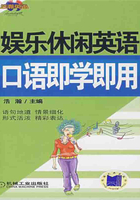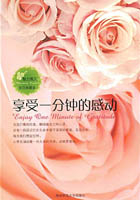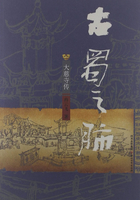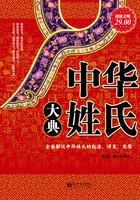The courage of life is often a less dramatic spectacle than the courage of a final moment; but it is no less a magnificent mixture of triumph and tragedy. A man does what he must—in spite of personal consequences, in spite of obstacles and dangers and pressures—and that is the basis of all human morality.
To be courageous... requires no exceptional qualifications, no magic formula, no special combination of time, place and circumstance. It is an opportunity that sooner or later is presented to us all. Politics merely furnishes one arena which imposes special tests of courage. In whatever arena of life one may meet challenge of courage, whatever may be the sacrifices he faces if he follows his conscience—the loss of his friends, his fortune, his contentment, even the esteem of his fellow men—each man must decide for himself the course he will follow. The stories of past courage can define that ingredient—they can teach, they can offer hope, they can provide inspiration. But they cannot supply courage itself. For this each man must look into his own soul.
微尘与栋梁
On Motes and Beams
威廉·萨默塞特·毛姆 / William Somerset Maugham
令人好奇的是,与他人的过失相比,我们自己的过失往往不是那么可憎。我想,原因是我们了解一切导致过失出现的情况,因而,能够想办法原谅自己犯一些不容许他人犯的过错。我们不关注自己的缺点,即使身陷困境,不得不正视它们时,我们也会很容易就宽恕自己。据我所知,我们这样做是正确的。缺点是我们自己的一部分,我们必须接纳自己的好与坏。
但当我们评判别人时,情况就不一样了。我们不是通过真正的自我,而是用另外一种自我形象来判断,完全摒除了在任何世人眼中,会伤害到自己的虚荣或者体面的事物。举一个小例子:当觉察到别人说谎时,我们是多么地不屑啊!但是有谁可以说自己从未说过谎?可能还不止一百次呢!
人与人之间没什么大的区别。他们皆是伟大与渺小,善良与邪恶,高贵与低贱的混合体。有些人性格比较坚毅,机会也较多,因此在这个或者那个方向上,更能自由地发挥自己的天资,但是人类的潜质都是同样的。至于我自己,我认为自己不比多数人更好或更差,但是我知道,如果我记下我生命中每一个行动和每一个掠过我心头的想法的话,世人将会把我看成一个邪恶的怪物。每个人都会有这样的怪念头,这样的认识应能启发我们宽容自己,也宽容他人。同时,若因此使我们在看待他人时,即使是对天下最优秀最令人尊敬的人,也可以有幽默感,而且也不太苛求自己的话,那也是很有益的。
It is curious that our own offenses should seem so much less heinous than the offenses of others. I suppose the reason is that we know all the circumstances that have occasioned them and so manage to excuse in ourselves what we cannot excuse in others. We turn our attention away from our own defects, and when we are forced by untoward events to consider them, find it easy to condone them. For all I know we are right to do this; they are part of us and we must accept the good and bad in ourselves together.
But when we come to judge others, it is not by ourselves as we really are that we judge them, but by an image that we have formed of ourselves from which we have left out everything that offends our vanity or would discredit us in the eyes of the world. To take a trivial instance: how scornful we are when we catch someone out telling a lie; but who can say that he has never told not one, but a hundred?
There is not much to choose between men. They are all a hotchpotch of greatness and littleness, of virtue and vice, of nobility and baseness. Some have more strength of character, or more opportunity, and so in one direction or another give their instincts freer play, but potentially they are the same. For my part, I do not think I am any better or any worse than most people, but I know that if I set down every action in my life and every thought that has crossed my mind, the world would consider me a monster of depravity. The knowledge that these reveries are common to all men should inspire one with tolerance to oneself as well as to others. It is well also if they enable us to look upon our fellows, even the most eminent and respectable, with humor, and if they lead us to take ourselves not too seriously.
我爱人人,人人爱我
To Love and to Be Loved
特雷莎修女 / Mother Teresa
仅仅说“我爱上帝”是不够的,我们还必须爱我们的邻居。圣约翰说过,如果你不爱邻居却还说你爱上帝,那你就在撒谎。连耳触目及、伸手可摸的邻居都不爱,你又怎能热爱看不着、听不见的上帝呢?所以,认识到这点十分重要——说句实话,有爱就有伤害。我们应该甘愿倾我所能,以求不伤害他人,事实上这样就是在对他人行善。这也就要求我们心甘情愿地付出,遭受痛苦也在所不惜。否则,我们心中就不会有真爱,我们所带给周围人们的就不是安宁,而是不公正。
因爱着我们,耶稣也是痛苦的。上帝按照自己的形象创造我们,是让我们去成就更伟大的事业,是让我们做到“我爱人人,人人爱我”。正如经文中训导的那样,我们必须“所作所为向基督看齐”。上帝因此创造我们,教我们像他爱我们一样去爱别人。耶稣让自己忍饥挨饿,让自己赤身裸体,让自己无家可归,让自己遭人躲闪。他说:“你是这样对待我的。”到了最后的审判日,他将对在他右边的人说:“你对这些人中最卑微的人所做的事情,就是对我做的事情。”他还将对在他左边的人说:“你忽视了为这些人中最卑微者做的什么,就等于忽视了为我做的事。”
在十字架上生命即逝的时刻,他还说:“我渴望。”耶稣渴望的是我们的爱,是对全天下不分贵贱的苍生的爱。我们每个人都渴望得到别人的爱,渴望别人小心翼翼而不将我们伤害,都渴望自己得到善待。不惜痛苦地去施爱吧,这就是真爱的意义。
It is not enough for us to say, “I love God.” But I also have to love my neighbor. St. John says that you are a liar if you say you love God and you don’t love your neighbor. How can you love God whom you do not see, if you do not love your neighbor whom you see, whom you touch, with whom you live? And so it is very important for us to realize that love, to be true, has to hurt. I must be willing to give whatever it takes not to harm other people and, in fact, to do good to them. This requires that I am willing to give until it hurts. Otherwise, there is no true love in me and I bring injustice, not peace, to those around me.
It hurts Jesus to love us. We have been created in his image for greater things, to love and to be loved. We must “put on Christ,” as Scripture tells us. And so we have been created to love as he loves us. Jesus makes himself the hungry one, the naked one, the homeless one, the unwanted one, and he says, “You did it to me.” On the last day he will say to those on his right, “whatever you did to the least of these, you did to me, ” and he will also say to those on his left, “whatever you neglected to do for the least of these, you neglected to do it for me.”
When he was dying on the Cross, Jesus said, “I thirst.” Jesus is thirsting for our love, and this is the thirst for everyone, poor and rich alike. We all thirst for the love of others, that they go out of their way to avoid harming us and to do good to us. This is the meaning of true love, to give until it hurts.
写作的乐趣
The Joys of Writing
温斯顿·丘吉尔 / Winston Churchill
在我看来,世上幸运的人——唯一真正幸运的人是那些以工作为乐的人。这类人并不多,起码不如人们常说的那么多,并且,作家也许是其中最重要的组成部分之一。从幸运这个角度来说,他们至少享受着生活中真正的和谐之乐。我觉得以工作为乐,是人们值得为之奋斗的一种崇高荣誉。别人会羡慕这些幸福的人,这也不足为奇,因为他们在快乐的激情里找到了生活的方式,对他们而言,工作一小时,也就是享受一小时,休息——甭管多么有必要——都是让人厌烦的插曲,甚至连休假也差不多是一种损失。无论一个人写得好坏与否,写得或多或少,如果他喜爱写作的话,就会享受其中谋篇布局的乐趣。在一个阳光明媚的清晨,伏案写作,不受任何人打扰地坐上四个时辰,加上有足够的上好白纸,还有一支“挤压式”妙笔——这才是真正的幸福。能有一份愉快的职业让人全身心地投入——此愿足矣!管它外面发生什么事!下议院尽管做想做的一切,上议院也可随便;异教徒或许在世界各个角落怒火汹汹;美国市场大可一泻千里,证券下跌;女权运动兴起——所有这些都别管,无论怎样,我们有四个小时可以逃脱这无趣、病态、专制、混乱的尘世,用想象的钥匙开启藏有大千世界所有宝物的橱柜。















